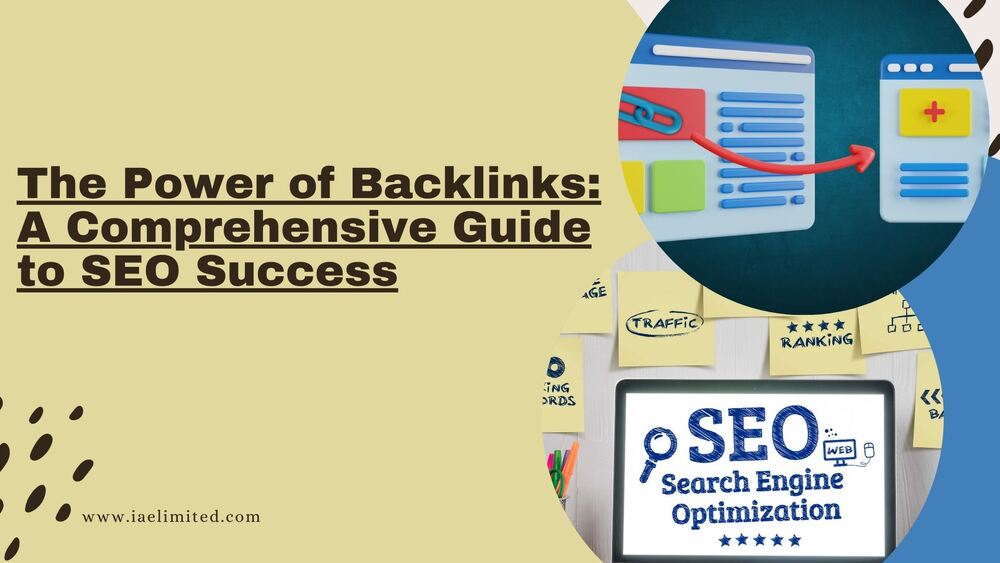
Digital marketing is a dynamic field that relies heavily on the right tools and platforms. To achieve success, it’s essential to leverage the best tools available for automation, analytics, content creation, social media management, and SEO.
This guide will explore the top tools and platforms that can enhance your digital marketing efforts, ensuring you stay ahead in a competitive landscape. In case you missed it, also published a post on, how to Build a Strong Personal Brand in Digital Marketing. this comprehensive article will help you create a personal brand that stands out and resonates with your audience.
Essential Categories of Digital Marketing Tools
Table of Contents
Marketing Automation Tools
Marketing automation tools streamline repetitive tasks and allow you to focus on strategic activities. They help in managing campaigns, nurturing leads, and improving customer engagement.
Definition and Benefits: Marketing automation involves using software to automate marketing tasks such as email campaigns, social media posts, and lead scoring. The primary benefits include increased efficiency, personalized marketing, and better data insights.
Key Features to Look For:
- Automated Campaign Management: Set up and manage multiple campaigns simultaneously.
- Segmentation and Targeting: Customize messages based on audience segments.
- Analytics and Reporting: Track performance metrics and campaign success.
Analytics and Reporting Tools
Analytics and reporting tools provide insights into your marketing performance, helping you make data-driven decisions.
Importance of Data-Driven Decisions: Data-driven decisions are crucial for optimizing marketing strategies and improving ROI. These tools help you understand which tactics are working and which need adjustment.
Features for Effective Reporting:
- Real-Time Data: Access up-to-date information on campaign performance.
- Customizable Reports: Create reports tailored to specific metrics or goals.
- Integration Capabilities: Combine data from various sources for comprehensive analysis.
Content Creation and Management Tools
Content is king in digital marketing, and having the right tools to create and manage it can make a significant difference.
Types of Content Creation Tools: These tools assist in producing various types of content, from blog posts to infographics and videos.
Benefits of Content Management Systems (CMS): A CMS helps you organize, manage, and publish content efficiently. It offers features such as templates, SEO optimization, and content scheduling.
Social Media Management Tools
Social media management tools are essential for managing and optimizing your social media presence.
Role in Social Media Marketing: These tools help in scheduling posts, tracking engagement, and analyzing performance across different platforms.
Features for Effective Social Media Management:
- Post Scheduling: Plan and schedule posts for various social media channels.
- Engagement Tracking: Monitor likes, shares, comments, and overall engagement.
- Analytics: Measure the success of your social media campaigns.
Search Engine Optimization (SEO) Tools
SEO tools are crucial for improving your website’s visibility in search engine results.
Importance of SEO in Digital Marketing: SEO helps drive organic traffic to your site by optimizing it for search engines. Effective SEO increases your chances of ranking higher in search results.
Key Features for SEO Optimization:
- Keyword Research: Identify relevant keywords to target.
- On-Page Optimization: Optimize individual web pages for specific keywords.
- Backlink Analysis: Analyze and improve your website’s backlink profile.
Marketing Automation Tools
Email Marketing Platforms
Email marketing platforms are designed to create, send, and manage email campaigns.
Top Platforms and Their Features: Some popular email marketing platforms include Mailchimp, HubSpot, and SendGrid. Key features to look for include automation capabilities, segmentation options, and detailed analytics.
Choosing the Right Email Marketing Tool: Consider factors such as ease of use, integration with other tools, and the ability to scale with your business needs.
CRM Systems
Customer Relationship Management (CRM) systems help manage interactions with current and potential customers.
Benefits of CRM in Marketing: CRMs help track customer interactions, manage leads, and improve customer service.
Leading CRM Tools and Their Features: Popular CRM systems include Salesforce, Zoho CRM, and HubSpot CRM. Features to look for include contact management, sales automation, and reporting.
Lead Generation and Nurturing Tools
Lead generation tools help capture and qualify leads, while nurturing tools maintain and develop relationships with these leads.
Tools for Capturing Leads: Tools like OptinMonster and Leadpages offer features for creating landing pages and lead capture forms.
Strategies for Nurturing Leads: Use marketing automation to send personalized emails, offer valuable content, and engage with leads based on their behavior and interests.
Analytics and Reporting Tools
Web Analytics Tools
Web analytics tools track and analyze website traffic and user behavior.
Overview of Google Analytics: Google Analytics is a leading web analytics tool that provides insights into website performance, user demographics, and behavior. For more detailed strategies on using Google Analytics, check out this guide.
Alternative Analytics Platforms: Other notable web analytics platforms include Adobe Analytics and Matomo. These tools offer similar features with varying levels of customization and reporting.
Social Media Analytics
Social media analytics tools track the performance of your social media campaigns.
Key Metrics to Track: Important metrics include engagement rates, follower growth, and click-through rates.
Top Social Media Analytics Tools: Tools like Hootsuite, Sprout Social, and Buffer provide comprehensive analytics and reporting for social media platforms.
Marketing Performance Dashboards
Marketing performance dashboards provide a centralized view of your marketing metrics.
Benefits of Centralized Dashboards: Dashboards consolidate data from various sources, making it easier to analyze overall performance and make informed decisions.
Recommended Dashboard Tools: Consider tools like Google Data Studio, Tableau, or Klipfolio for creating custom dashboards that meet your specific needs.
Content Creation and Management Tools
Graphic Design Tools
Graphic design tools assist in creating visual content such as banners, social media graphics, and infographics.
Popular Design Platforms: Tools like Canva, Adobe Spark, and Adobe Illustrator offer user-friendly design features and templates.
Features for Non-Designers: Look for platforms that offer easy-to-use templates, drag-and-drop functionality, and customization options.
Video Production Tools
Video production tools help in creating and editing video content.
Tools for Creating and Editing Videos: Popular tools include Adobe Premiere Pro, Final Cut Pro, and iMovie. These tools offer features for video editing, special effects, and sound design.
Key Features for Effective Video Marketing: Ensure the tools support high-resolution video, easy editing, and integration with other marketing platforms.
Content Management Systems (CMS)
CMS platforms help manage and publish digital content on your website.
Comparison of Leading CMS Platforms: Popular CMS platforms include WordPress, Joomla, and Drupal. Each offers unique features and customization options.
Features to Consider When Choosing a CMS: Consider ease of use, scalability, SEO capabilities, and support for multimedia content when selecting a CMS.
Social Media Management Tools
Social Media Scheduling Tools
Social media scheduling tools automate the posting of content across various platforms.
Benefits of Scheduling Posts: Scheduling tools save time, ensure consistent posting, and allow for strategic timing of content.
Top Scheduling Tools: Tools like Buffer, Hootsuite, and Later offer features for scheduling posts, tracking performance, and managing multiple accounts.
Social Media Analytics Tools
Social media analytics tools measure the success of your social media efforts.
Tracking Engagement and Performance: Monitor metrics such as likes, shares, comments, and click-through rates to gauge the effectiveness of your campaigns.
Recommended Analytics Tools: Tools like Sprout Social, Hootsuite, and Google Analytics provide comprehensive social media analytics.
Social Listening Tools
Social listening tools track and analyze conversations about your brand on social media.
Importance of Social Listening: Social listening helps you understand public sentiment, track brand mentions, and identify trends.
Leading Social Listening Platforms: Consider tools like Brandwatch, Mention, and Hootsuite Insights for effective social listening.
Search Engine Optimization (SEO) Tools
Keyword Research Tools
Keyword research tools help identify the best keywords to target for SEO.
Best Tools for Finding Keywords: Tools like SEMrush, Ahrefs, and Google Keyword Planner are popular for discovering keywords and analyzing their competitiveness.
Features for Effective Keyword Research: Look for tools that offer keyword suggestions, search volume data, and competition analysis.
On-Page SEO Tools
On-page SEO tools assist in optimizing individual web pages.
Tools for Optimizing On-Page Elements: Tools like Yoast SEO and Screaming Frog help optimize meta tags, headers, and content for specific keywords.
Recommended On-Page SEO Platforms: Ensure the tools offer features for content analysis, keyword integration, and SEO recommendations.
Backlink Analysis Tools
Backlink analysis tools help evaluate and improve your website’s backlink profile.
Importance of Backlink Analysis: Backlinks are crucial for SEO, as they indicate the authority and relevance of your site.
Top Tools for Backlink Monitoring: Tools like Ahrefs, Moz, and SEMrush provide insights into your backlink profile and help identify opportunities for improvement.
Choosing the Right Tools for Your Business
Assessing Your Marketing Needs
Identify your specific marketing needs to choose the right tools.
Identifying Your Business Requirements: Evaluate your goals, target audience, and marketing strategies to determine which tools will best support your objectives.
Evaluating Tool Features and Capabilities: Compare features, ease of use, and integration options to select tools that align with your needs.
Budget Considerations
Consider your budget when selecting digital marketing tools.
Comparing Tool Costs: Evaluate the cost of various tools and consider any additional expenses such as subscription fees or training costs.
Finding Tools That Offer the Best Value: Look for tools that provide a good balance of features and cost-effectiveness.
Integration and Compatibility
Integrating Marketing Tools
Integrating marketing tools ensures a seamless workflow and data consistency.
Benefits of Tool Integration: Integration allows for better data sharing, streamlined processes, and improved efficiency.
Common Integration Scenarios: Integrate tools such as CRM systems with email marketing platforms and analytics tools with social media management platforms.
Ensuring Compatibility with Existing Systems
Check compatibility with your current systems to avoid disruptions.
Checking Compatibility with Current Tools: Ensure new tools can integrate with your existing systems and software.
Strategies for Smooth Integration: Use APIs, middleware, or integration platforms to facilitate smooth integration between different tools.
Emerging Trends in Digital Marketing Tools
AI and Machine Learning in Marketing Tools
AI and machine learning are transforming digital marketing by providing advanced capabilities.
How AI is Transforming Digital Marketing: AI helps in automating tasks, personalizing content, and predicting consumer behavior.
Emerging AI-Powered Tools: Explore tools like chatbots, predictive analytics platforms, and automated content generators that leverage AI technology.
Automation and Personalization
Automation and personalization are key trends in digital marketing.
Trends in Marketing Automation: Automation tools are becoming more sophisticated, offering advanced features for campaign management and lead nurturing.
Tools for Personalizing Marketing Efforts: Use tools that offer dynamic content, personalized email campaigns, and targeted advertising based on user behavior.
In Conclusion
Leveraging the right tools and platforms is essential for effective digital marketing. From marketing automation and analytics to content creation and SEO, each tool plays a crucial role in enhancing your marketing efforts.
By choosing the right tools and integrating them effectively, you can optimize your strategies, drive better results, and stay competitive in the digital landscape.

FAQs
What are the most essential tools for digital marketing?
Essential tools include marketing automation platforms, analytics and reporting tools, content creation tools, social media management tools, and SEO tools.
How do I choose the best marketing automation tool for my business?
Consider features like automation capabilities, ease of use, integration options, and scalability when selecting a marketing automation tool.
What are the benefits of using analytics and reporting tools?
Analytics and reporting tools provide insights into your marketing performance, helping you make data-driven decisions and optimize your strategies.
How can I integrate different digital marketing tools effectively?
Ensure compatibility, use integration platforms or APIs, and test integrations to ensure a seamless workflow and data consistency.
What trends should I watch for in digital marketing tools?
Watch for trends in AI and machine learning, automation, personalization, and emerging technologies that enhance marketing capabilities.





